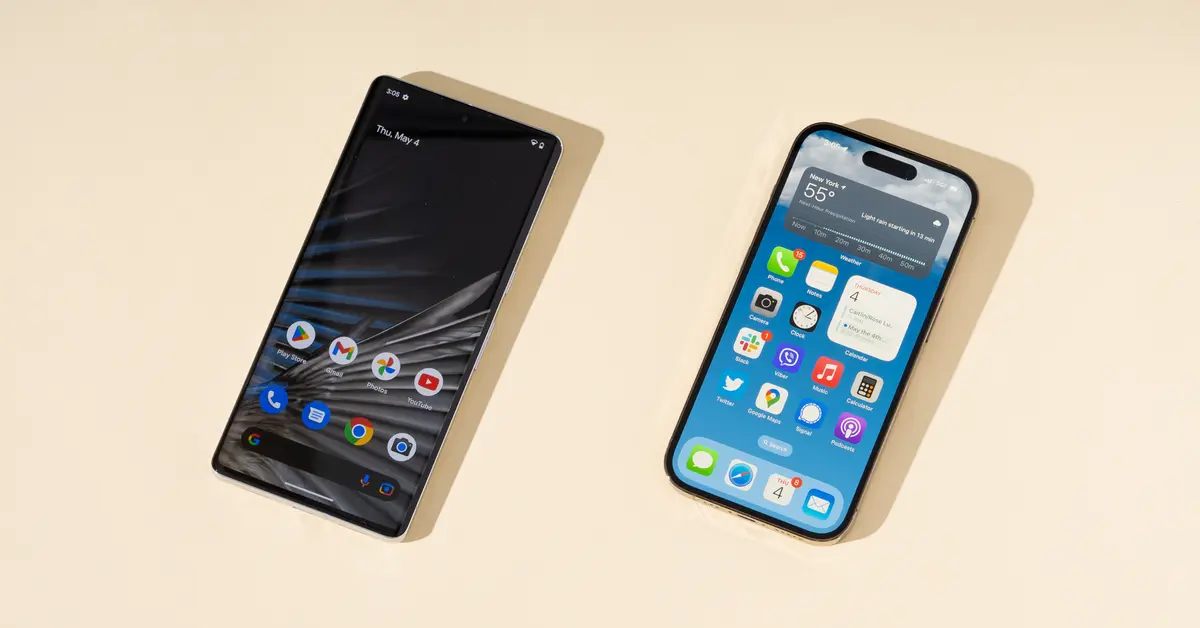
Android vs. iOS: An In-Depth Comparison of the Operating Systems
By Adedayo Ebenezer Oyetoke Published on: July 23rd 2023 | 4 mins, 601 words Views: 546
The battle between Android and iOS has raged on for over a decade. These two operating systems essentially dominate the smartphone market, with passionate advocates on both sides. But which one is better for you? In this comprehensive blog post, we'll compare Android and iOS across various factors like customization, app ecosystem, user experience and more. Read on for an in-depth exploration of the two leading mobile operating systems.
Customization and Personalization
One of Android's biggest strengths is customization. Android allows extensive personalization like home screen widgets, customizable icons, launchers to completely change the look and feel of the interface and more. Users can tailor their phones to suit their preferences.
In contrast, iOS offers limited customization options. The home screen icons and app layouts cannot be changed much. However, iOS 14 brought some welcomed customization like widgets and the App Library. Overall, Android is the clear winner when it comes to personalization.
App Ecosystem
Both Android and iOS have mature app ecosystems with over a million apps each. While iOS apps used to be higher quality in the past, the gap has narrowed significantly. Major apps and games now launch on both platforms together.
However, Android offers more flexibility in downloading apps from multiple sources unlike iOS which restricts it to the App Store. Android also has greater integration with Google services like Chrome, Maps, Drive etc. But iOS apps are generally better optimized for its hardware and software.
User Experience and Interface
iOS sports a clean, minimalist interface which is intuitive and easy to use. Android has made big strides in UI design but it's still not as refined as iOS. Fragmentation is also an issue with so many Android skins and versions.
But Android allows you to replace the default interface via launchers. iOS imposes a uniform experience across all devices which can be an advantage or limitation depending on user preferences.
Hardware and Specs
The wide range of Android devices means you have options ranging from budget to premium specs. iOS only runs on Apple devices which have relatively limited hardware diversity.
High-end Android phones compete well with the latest iPhones in areas like displays, chipsets, RAM and cameras. However, Apple's tight integration of hardware and software often enables better optimization.
Security and Privacy
iOS is generally more secure than Android. Apple controls both the hardware and software, issues timely updates across devices and imposes tight scrutiny on apps. In contrast, Android phones vary widely in security practices and update schedules.
iOS also offers stronger privacy protections but Android has been working hard to catch up. You can limit app permissions and enable privacy features like encryption. But Apple is tough to beat when it comes to privacy.
Pricing
Android phones are generally cheaper than iPhones for comparable specs. The extensive variety of Android devices at multiple price points gives consumers more choice. iOS is a walled garden with few devices and limited pricing flexibility.
Android and iOS both have their pros and cons. iOS shines in areas like user experience, privacy and security. Android offers more flexibility, customization and budget options. For many users, it comes down to personal preferences and weighing what's most important to them. With its open ecosystem and device diversity, Android caters well to tech enthusiasts who value customization. iOS appeals to users who prioritize simplicity, cohesive experience and strong privacy standards.
Whichever operating system you choose, you have an excellent selection of phones, apps and features at your fingertips. The Android vs iOS debate will undoubtedly continue as both platforms evolve. But the healthy competition between them will only improve the mobile experience for consumers.